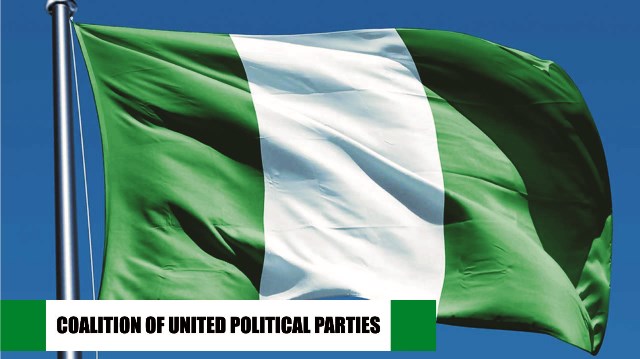Editorial
De-Registration Of Political Parties

The Independent National Electoral Commission (INEC) ruffled not just a few feathers when it announced on Thursday, February 6, the delisting of 74 political parties from the register of political parties in the country, saving only 18.
While making the announcement at a press conference in Abuja, the Chairman of INEC, Prof. Mahmood Yakubu, said the commission acted in conformity with the 1999 Constitution of the Federal Republic of Nigeria (as amended) which under the Fourth Alteration vests in INEC the power to register and regulate the activities of political parties on the following grounds: “Breach of any of the requirements for registration as a political party; Failure to win at least 25 per cent of the votes cast in one state of the federation in a presidential election; or 25 per cent of votes cast in one local government area of a state in a governorship election; Failure to win at least one ward in a chairmanship election; Failure to win one seat in the national or state assembly election or one seat in a councillorship election”.
Prof. Yakubu stressed that the electoral umpire relied on the 2018 Fourth Alteration to the Constitution (Section 225A) which empowers the commission to deregister political parties on the aforementioned grounds.
Furthermore, the chief electoral officer of the country explained that “following the conclusion of the 2019 general election, including the court-ordered rerun elections arising from litigations, the commission was able to determine the performance of political parties in the elections. In addition, they were also assessed on their performance in the Area Council elections in the Federal Capital Territory (FCT), which coincided with the 2019 general election”.
Based on these assessments, he said, the commission found only 18 political parties which fulfilled the requirements for existence as far as Section 225A of the 1999 Constitution (as amended) is concerned.
However, reacting to the development, a number of political parties affected by the action, including the Inter-Party Advisory Committee (IPAC), the umbrella body of all registered political parties in the country have raised their voices, crying blue murder.
Tope Fasua, National Treasurer of IPAC, speaking on behalf of the body accused INEC of impunity and bias, insisting that the action of the electoral body was unacceptable and hinted that his organisation will move against it.
“We are coming out with a position on the platform of IPAC; it’s totally unacceptable. They collected our money; we ran for election once and they deregistered us. There are parties that won election in 2015, 2007, 2003, that didn’t win election in 2019 and you de-registered them. It is totally unacceptable”, Fasua who is also the National Chairman of Abundant Nigeria Renewal Party (ANRP), one of the deregistered parties, fumed.
As IPAC and many of the affected political parties kick and threaten litigation against the Independent National Electoral Commission, the two dominant political parties in the country, the Peoples Democratic Party (PDP) and the All Progressives Congress (APC), and a good number of Nigerians have not only hailed the action of INEC but have called for further pruning of the ranks of the political parties.
The general feeling among Nigerians is that most of the political parties have since constituted themselves into liabilities rather than assets to the electoral process. Where they are expected to provide credible opposition and alternative voices that put the government in power in check, they have rather been found to be merchants who trade their support and platforms for selfish gains.
The unseriousness of most of the 91 political parties that floated more than 23,000 candidates in the 2019 general election was underscored by the fact that they neither staged campaign rallies nor engaged in any activity that gave them visibility except the free publicity given by the media and civil societies, especially during the organised political debates and voter education programmes.
What was also done in the public glare was that, even though a total of 73 candidates got registered on the presidential ballot, most of them and their parties, got busy forming themselves into coalitions and groups that engaged in endorsing and campaigning for candidates of the dominant parties. And even when the law does not permit that, Nigerians watched in dismay as presidential candidates announced their withdrawal from the race in support of candidates of other parties only 48 hours to polling day.
The Tide believes that no well meaning individual or group will support or encourage the monumental abuse inherent in our electoral process and expect our democracy to survive. We therefore lend our voice to those of our compatriots in not only hailing INEC for the courageous action but to urge the electoral body to explore constitutional means of further reducing the number.
We are not unaware that INEC’s move to delist 39 political parties between 2011 and 2013 did not come to fruition as the parties scuttled the action through the judiciary. We hope this time around INEC’s action will not suffer the same fate as we are strongly persuaded that the efficiency and effectiveness of our election management body can only be guaranteed with a manageable number of political parties.
Editorial
Resolve Rumuwoji Market Issues, Others

Editorial
As NDG Ends Season 2

Editorial
Beginning A New Dawn At RSNC

-

 News4 days ago
News4 days agoAmend Constitution To Accommodate State Police, Tinubu Tells Senators
-

 Politics4 days ago
Politics4 days agoSenate Urges Tinubu To Sack CAC Boss
-
Business4 days ago
Crisis Response: EU-project Delivers New Vet. Clinic To Katsina Govt.
-
Business4 days ago
President Tinubu Approves Extension Ban On Raw Shea Nut Export
-

 News4 days ago
News4 days agoDisu Takes Over As New IGP …Declares Total War On Corruption, Impunity
-
Business4 days ago
Fidelity Bank To Empower Women With Sustainable Entrepreneurship Skills, HAP2.0
-
Business4 days ago
President Tinubu Extends Raw Shea Nuts Export Ban To 2027
-
Sports4 days ago
NDG: Rivers Coach Appeal To NDDC In Talent Discovery

